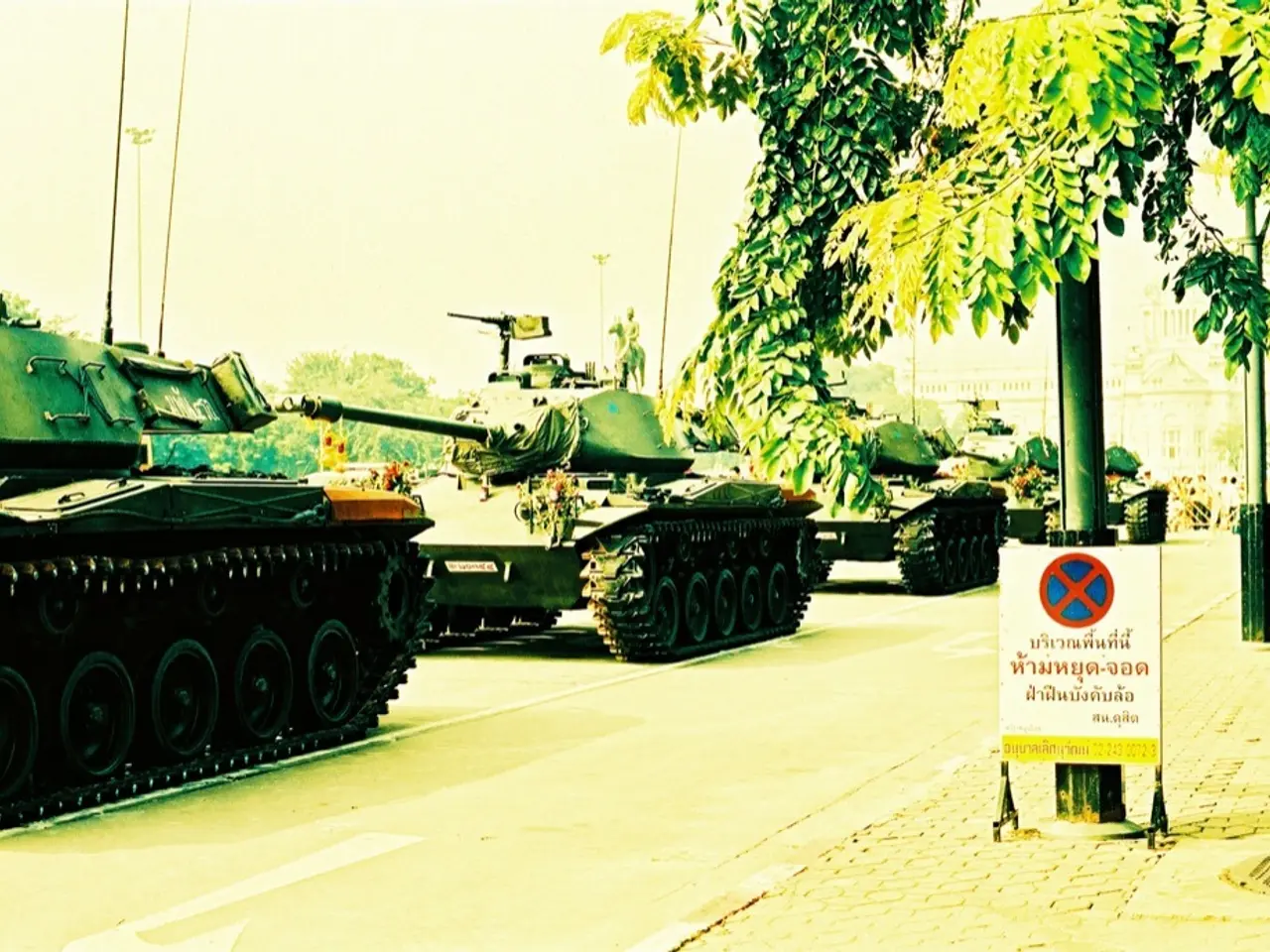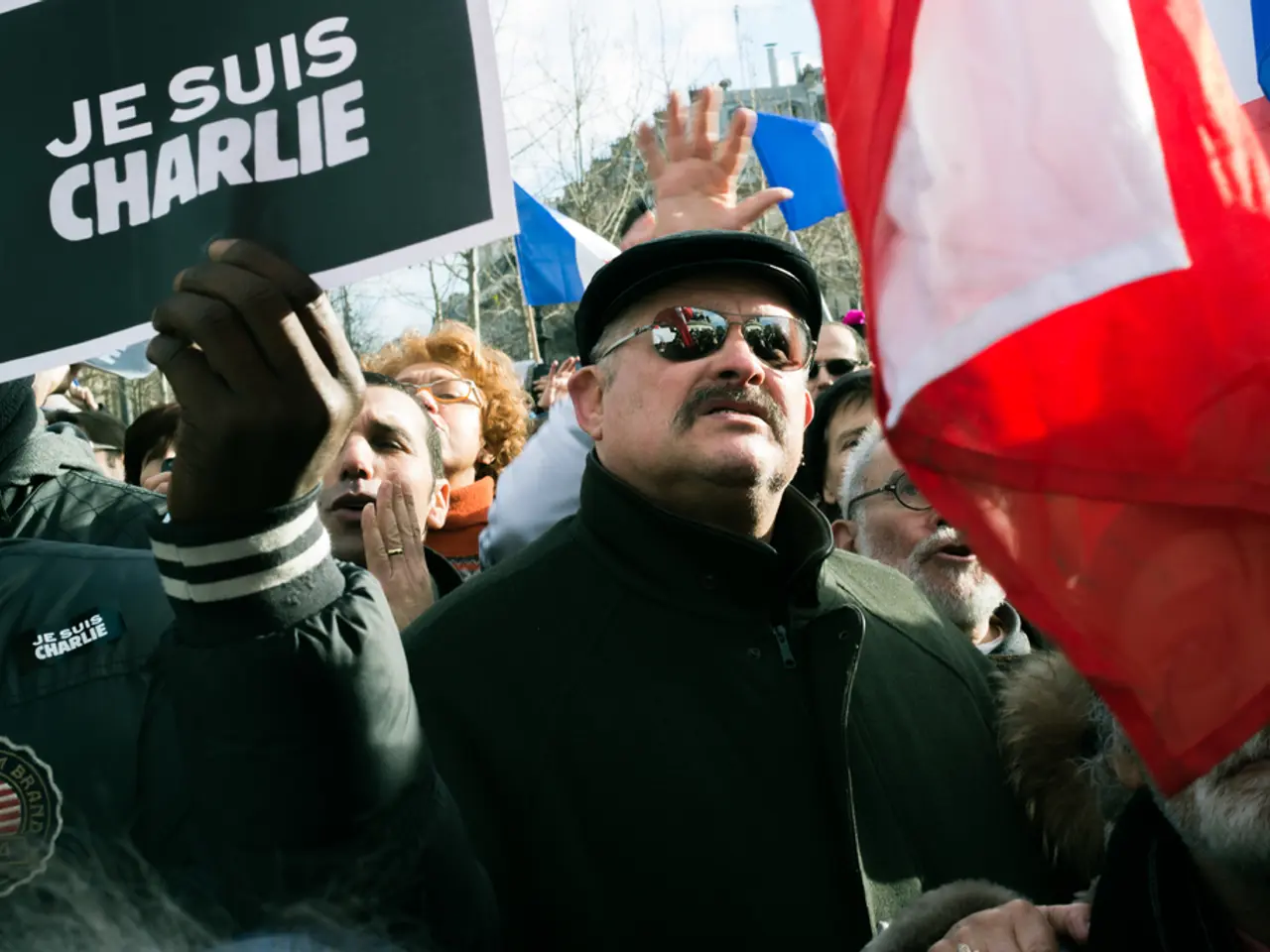Trump imposes restrictions on Russian covert naval forces
In a bid to limit Russia's ability to finance its ongoing war in Ukraine, the European Union and the United States have implemented sanctions on the country's oil tankers. These measures, primarily focusing on a price cap on Russian oil and restrictions on oil shipment logistics, aim to curb Moscow's financial resources.
The European Union's 18th sanctions package introduces a lowered dynamic price cap on Russian crude oil exports to approximately $47.60 per barrel, down from the previous $60 cap set by the G7 in December 2022. This cap is pegged at 15% below the long-term average market price to limit Russia's revenue while avoiding shocks to global oil prices.
Shipping companies, insurers, and financial and brokerage firms that facilitate Russian oil shipments above this cap risk being sanctioned. The sanctions also target transactions related to the Nord Stream gas pipelines and further clamp down on Russia's shadow fleet, vessels used to stealthily ship Russian oil and evade sanctions.
The US Treasury Department has also sanctioned an Iranian shipping network involved in transporting Russian oil and petroleum products, demonstrating efforts to cut off alternative transport routes used by Russia.
However, Russia has increased its reliance on "shadow tankers"—vessels owned or insured outside the G7+ coalition, making enforcement more difficult. Reports show that in June 2025, around 56% of Russian oil was transported on G7+ tankers (up from 36% in January), but the use of shadow tankers remains significant. The growing shadow fleet risks undermining the impact of sanctions and poses environmental risks.
The success of these sanctions depends on the effectiveness of closing loopholes and enforcement against these evasive strategies. Potential impacts include reduced revenue for Russia from its oil exports, pressure on global shipping and insurance sectors, challenges in enforcement due to shadow fleets, and efforts to close loopholes such as banning imports of oil products refined from Russian crude.
Meanwhile, the conflict in Ukraine continues. The Ukrainian military has reported losses totaling over 33,000 soldiers in July, according to Ukrainian reports. The Trump administration is considering new sanctions against Russia's "ghost fleet" of oil tankers if there is no ceasefire by August 8.
In a related development, the Russian Pacific Fleet plans to conduct joint patrols in the Sea of Japan, with Russia and China considering similar joint patrols. These exercises, according to Russian officials, are of a defensive nature and not directed against other countries.
The situation in Ukraine remains volatile, with ongoing reports of casualties and military movements. The US Special Envoy Steve Witkoff has reportedly arrived in Moscow for talks, while Ukraine continues to receive support from its allies, with Sweden, Denmark, and Norway announcing plans to purchase US weapons for Ukraine, with a total value of $500 million. Ukraine has also received pledges for over $1 billion in US weapons from European NATO partners within two days, as announced by President Volodymyr Zelensky.
In conclusion, the ongoing sanctions against Russia's oil tankers are a significant effort to curb Russia's war funding. Their success depends on the effectiveness of closing loopholes and enforcement against evasive strategies, as well as the continued support and cooperation of Russia's allies.
- The European Union's latest community policy, as part of its 18th sanctions package, includes a lower dynamic price cap on Russian crude oil exports, aimed at limiting revenue for the ongoing war-and-conflicts in Ukraine while minimizing global oil price shocks.
- The political landscape surrounding the conflict in Ukraine remains complex, with the US Special Envoy Steve Witkoff conducting talks in Moscow, Ukraine receiving pledges for over $1 billion in weapons from European NATO partners, and Russia planning joint patrols in the Sea of Japan, emphasizing the need for ongoing general-news coverage and diplomatic engagements.





